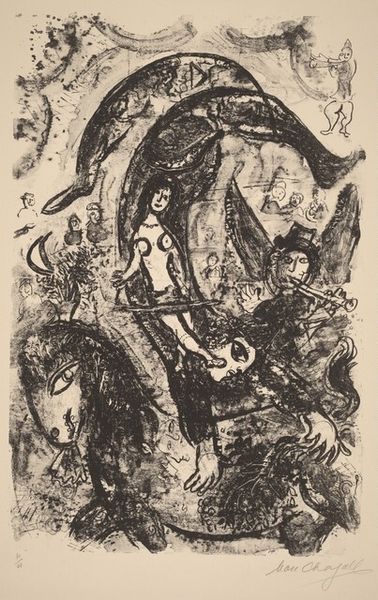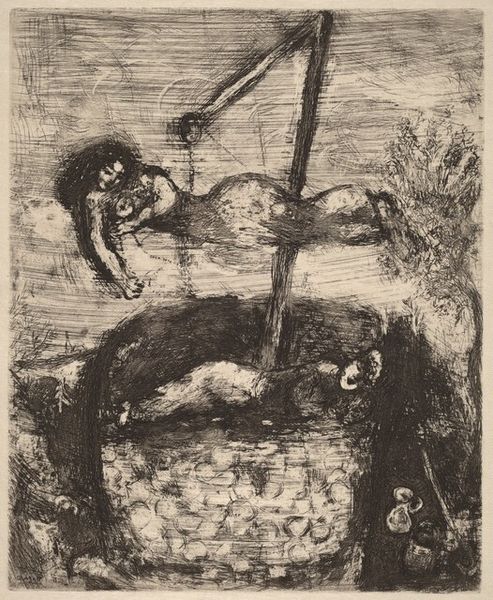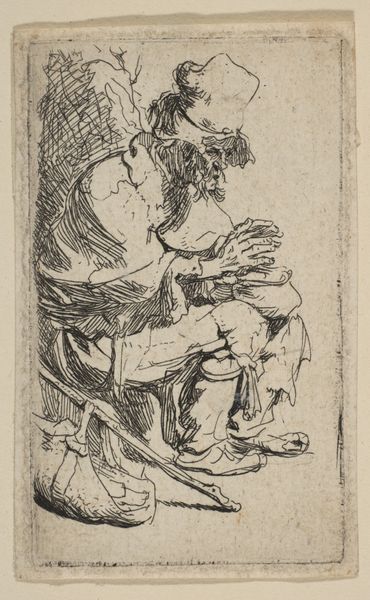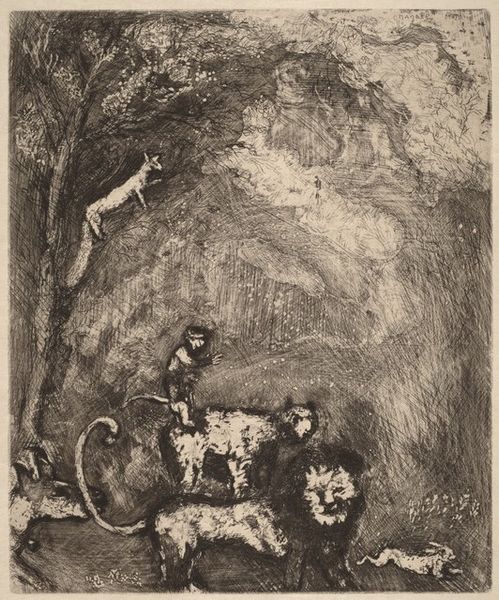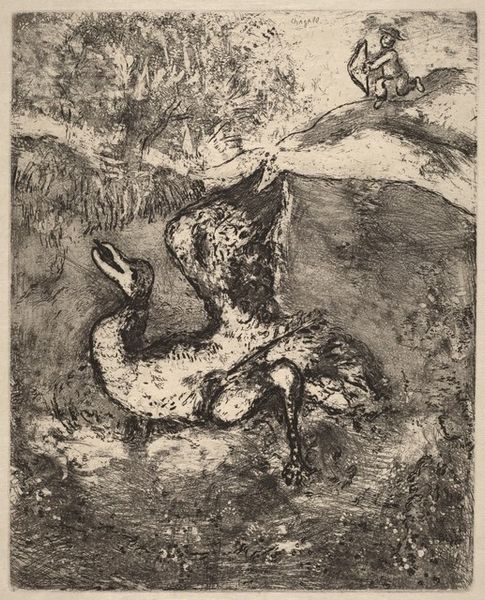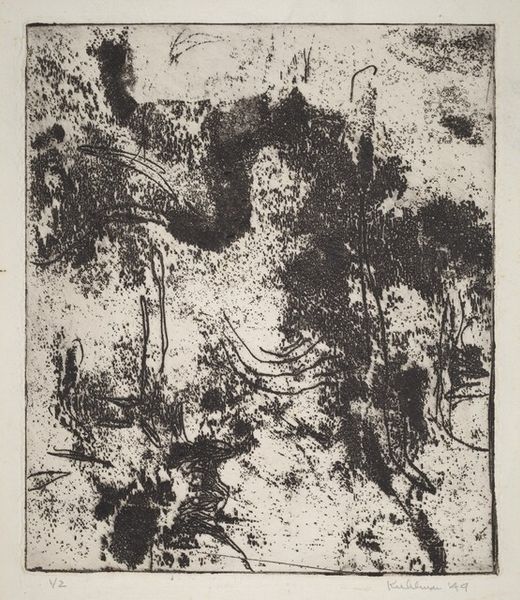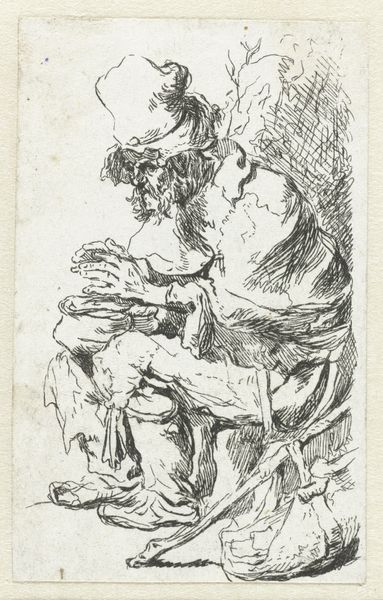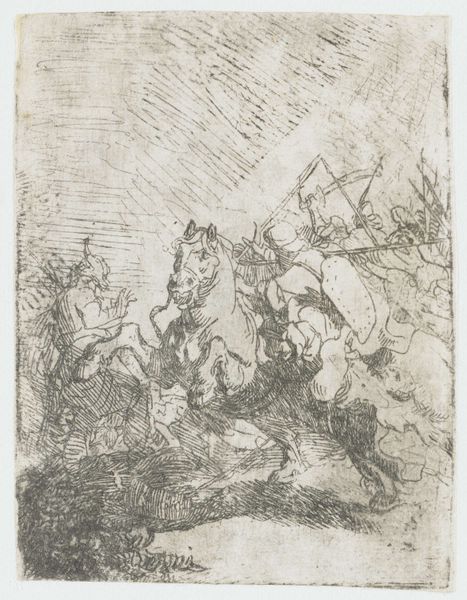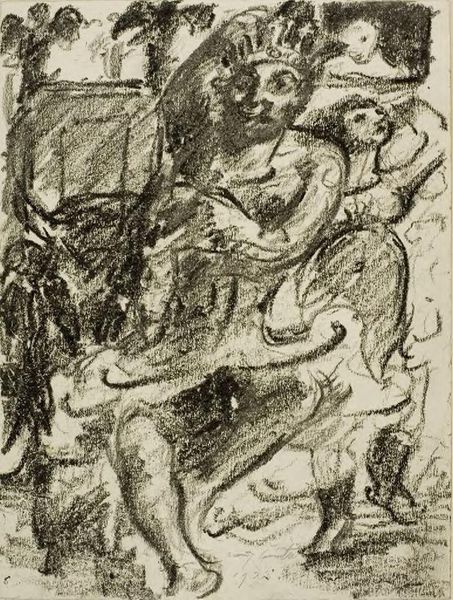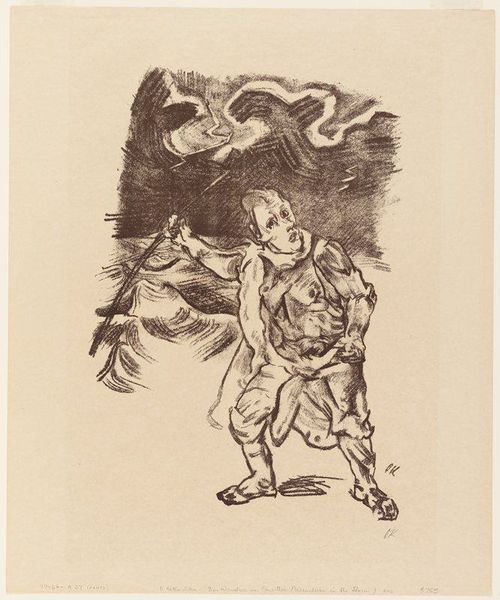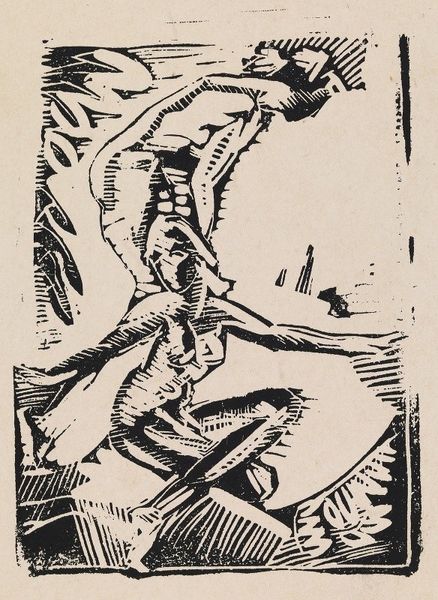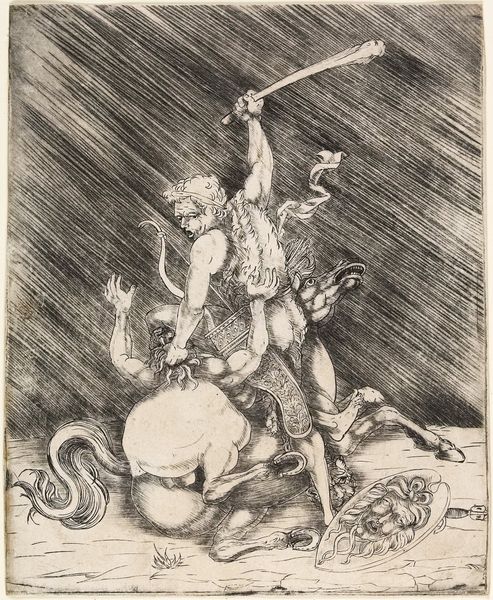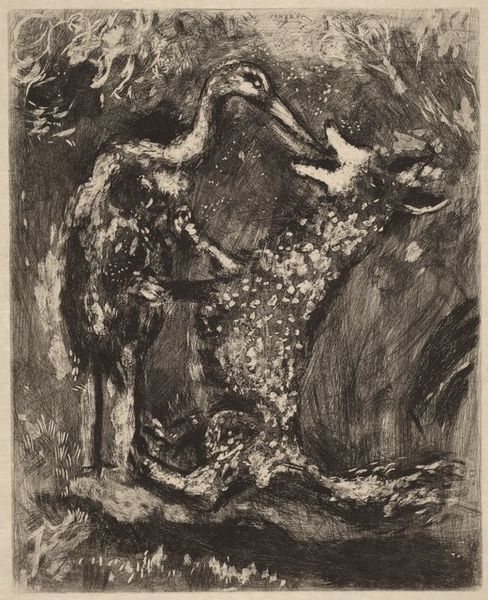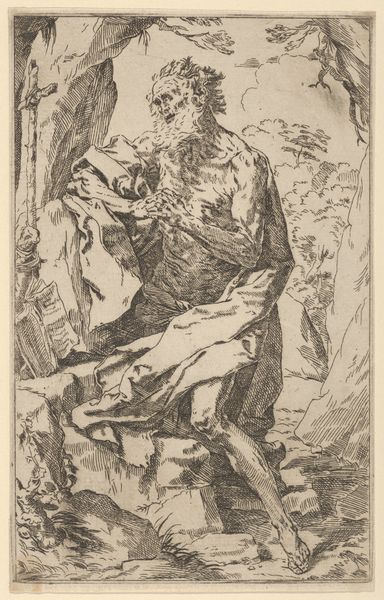
Dimensions: image: 310 x 245 mm frame: 756 x 589 x 26 mm
Copyright: © Georg Baselitz | CC-BY-NC-ND 4.0 DEED, Photo: Tate
Curator: This is an untitled etching by Georg Baselitz, created in 1965. It's held here at the Tate. What strikes you initially? Editor: Chaos, almost. A whirlwind of lines that seem to coalesce into figures, but remain stubbornly abstract. There's a tension between representation and dissolution. Curator: Baselitz often explores fragmentation, the psychological weight of fractured forms. Notice the prominent hands, perhaps a symbol of creation or control, amidst the disarray. Consider also that this was produced in a Germany grappling with its recent past. Editor: Interesting. So the visual turmoil might reflect a societal unease, a breaking down of conventional narratives after the war. The figure seems burdened, overwhelmed by its own context. It makes you wonder about the role of art in such a landscape. Curator: Precisely. Images carry cultural memory, and Baselitz seems to be dismantling and reassembling those memories through distorted symbols, forcing us to confront uncomfortable truths. Editor: It's a powerful piece, then, not just for its aesthetic qualities but for its historical implications. Curator: Yes, a potent reminder of art's engagement with history.
